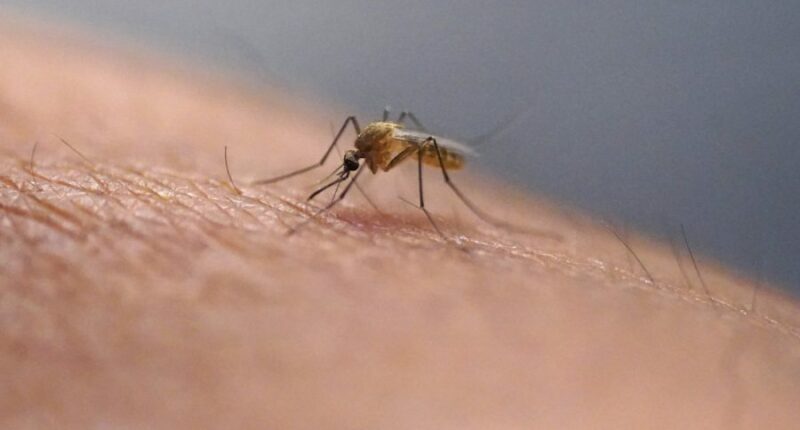Share this @internewscast.com

The South Carolina Department of Public Health (SCDPH) reports the first confirmed fatality from eastern equine encephalitis (EEE) virus in over two decades. The victim hailed from Beaufort County.
This is the first human case of EEE virus to be reported in South Carolina since 2020 and the first fatality from the virus in the state since 2003.
EEE virus is spread to people through the bite of an infected mosquito and is not transmissible from person to person.
Dr. Edward Simmer, interim director at SCDPH, emphasized, “Though human cases of the virus are exceptionally rare, its impact can be severe for those infected. We urge individuals to take measures to reduce mosquito bites by removing potential breeding sites.”
The Centers for Disease Control and Prevention (CDC) states that around 30% of those who contract severe eastern equine encephalitis do not survive. Many who do live face long-term neurological issues.
There are no vaccines to prevent or medicines to treat infection in humans.
Minimizing the risk of EEE virus infection hinges on preventing mosquito bites. The American Mosquito Control Association (AMCA) advises wearing long sleeves, pants, and light-colored, loose-fitting attire in outdoor settings, along with the correct application of a repellent approved by the EPA, containing substances like catnip oil, citronella oil, DEET, IR 3535, lemon eucalyptus oil, picaridin, p-menthane-3,8-diol (PMD), or 2-undecanone. Always adhere to the instructions on product labels.
In response, Beaufort County Mosquito Control has executed several mosquito spraying operations via truck near the area of the human case since the illness was first reported. Additionally, helicopters will be employed for broader coverage.
The county plans to deploy mosquito traps for EEE virus testing, but no EEE-positive mosquitoes have been found so far in 2025. Surveillance will continue through increased trapping and subsequent spraying based on data collected from these efforts.
So far in 2025, SCDPH has detected 10 EEE-virus positive horses in Aiken County (3), Colleton County (2), Horry County (1), Jasper County (1), Orangeburg County (1), and Sumter County (2) from mid-July through August.
Mosquitoes can develop in water that stands for more than five days. SCDPH recommends following these guidelines to keep your home and yard mosquito-free:
- Tip over anything that can hold water, such as toys, plant saucers or vases. To disrupt mosquito breeding cycles, change water often, even daily, in items like dog bowls and bird baths.
- Toss or recycle any unwanted yard items that may collect water, such as old tires, junk, or trash.
- Turn over items that can hold water like children’s pools, wheelbarrows, or buckets.
- Tighten tarps over items like boats, wood piles, grills, and pools.
- Take care of your property. Clean out debris from ditches, drains, and gutters. Keep grass cut low and trim or remove overgrown plants.
- Treat items that can’t be drained or emptied with appropriate mosquito control products.
- Team up and talk with neighbors about reducing mosquitoes in and around your home and neighborhood.
Click here for additional information on mosquito prevention, bite prevention and more.












